Background
Anthony Hopkins was born on December 31, 1937, in Margam, a suburb of Port Talbot, Glamorgan. His parents were Annie Muriel (née Yeates) and Richard Arthur Hopkins, a baker.

1978
Anthony Hopkins in Magic
1979
Anthony Hopkins in the play Kean
1980
Anthony Hopkins in The Elephant Man
1981
Anthony Hopkins in The Bunker
1984
Anthony Hopkins in The Bounty
1984
Anthony Hopkins in The Bounty
1988
Anthony Hopkins in Meet Joe Black
1988
Anthony Hopkins in The Tenth Man
1991
Anthony Hopkins in Silence of the Lambs
1991
Anthony Hopkins in The Silence of the Lambs
1992
Anthony Hopkins in Bram Stoker’s Dracula
1992
Anthony Hopkins in Howards End
1992
Anthony Hopkins in Howards End
1993
Anthony Hopkins in Shadowlands
1993
Anthony Hopkins in Shadowlands
1993
Anthony Hopkins in The Remains of the Day
1993
Anthony Hopkins in The Remains of the Day
1995
Anthony Hopkins in Nixon
1997
Anthony Hopkins in The Edge
1997
Anthony Hopkins in The Edge
1999
Anthony Hopkins in Titus
2002
Anthony Hopkins in Red Dragon
2003
Lanewood Ave &, N La Brea Ave, Los Angeles, CA 90028, United States
Anthony received a star on Walk of Fame on September 24, 2003.
2005
Anthony Hopkins in The World’s Fastest Indian
2011
Anthony Hopkins as Odin in the film adaptation of Marvel Comics' Thor.
Anthony Hopkins
Anthony Hopkins
Anthony Hopkins
Anthony Hopkins
Anthony with his mother, Muriel Anne Hopkins.
Cowbridge Grammar School. Anthony Hopkins is in the red circle, aged 16.
Anthony Hopkins as a student of Cowbridge Grammar School.
North Rd, Cardiff CF10 3ER, United Kingdom
Anthony Hopkins was educated at The Royal Welsh College of Music & Drama.
62-64 Gower St, Bloomsbury, London WC1E 6ED, United Kingdom
Anthony Hopkins was educated at The Royal Academy of Dramatic Art.
Blaendare Rd, Pontypool NP4 5YG, United Kingdom
Anthony Hopkins as a student of West Monmouth School.
Transformations of Sir Anthony Hopkins - World of Theatre and Art | Place for beautiful things.
Ian McKellen and Anthony Hopkins in "The Dresser"
Anthony Hopkins and Bill Nighy in King Lear at the National Theatre.
6-7 Great Newport St, Covent Garden, London WC2H 7JB, United Kingdom
Anthony Hopkins in 'Edward II' by Christopher Marlowe, Arts Theatre, London.
Hopkins as Pierre Bezuhov in the BBC production of War and Peace.
Ian McKellen and Anthony Hopkins in "The Dresser"
Anthony Hopkins received the Academy Award in 1992.
Anthony received the Cecil B. DeMille Award in 2006.
Anthony Hopkins received the BAFTA/LA Britannia Award in 1995.
Anthony received the BAFTA Academy Fellowship in 2008.
Anthony received the BAFTA Awards in 1994, 1992, 1973.
Anthony received the Order of the British Empire in 1987.
Anthony Hopkins received the Primetime Emmy Awards in 1976 and 1981.



















































Actor director musician producer
Anthony Hopkins was born on December 31, 1937, in Margam, a suburb of Port Talbot, Glamorgan. His parents were Annie Muriel (née Yeates) and Richard Arthur Hopkins, a baker.
His school days were unproductive; he would rather immerse himself in art, such as painting and drawing, or playing the piano, than attend his studies. In 1949, to instill discipline, his parents insisted he attend Jones' West Monmouth Boys' School in Pontypool. He remained there for five terms and was then educated at Cowbridge Grammar School in the Vale of Glamorgan. In desperation, his parents sent him off to boarding school, where the headmaster told him he was "hopeless" and he developed a "sheer contempt for authority." He stumbled into acting at 17 with a YMCA group (his one line: "Blessed are the meek, for they shall inherit the earth").
An early turning point in Hopkins' life came when he met the famous actor Richard Burton, also a Port Talbot native. Hopkins, then 15, went to Burton's home to get his autograph. As he recalled, in an interview with US magazine, he thought, "I've got to get out of this place. I've got to become what he is. And I think something deep in my subconscious mind, or whatever it was, set the target. I thought, I'm going to be famous."
Despite his newfound commitment to making his way out of Port Talbot, Hopkins continued to struggle socially and academically. At age 17 he dropped out of school, and, at the urging of his father, he enrolled in a drama class held at a local Young Men's Christian Association. Well skilled at the piano, Hopkins then earned a scholarship to the nearby Cardiff College of Music and Drama, where he studied for two years. After two years of military service, Hopkins worked in the Manchester Library Theatre and the Nottingham Repertory Company. In 1961, he decided to pursue formal training as an actor. He received a scholarship to the Royal Academy of Dramatic Art, in London. He graduated in 1963.
In 1988, Hopkins was made an Honorary D.Litt and in 1992 was awarded an honorary fellowship from the University of Wales, Lampeter.
Anthony Hopkins first appeared on the London stage in Lindsay Anderson’s production of Julius Caesar (1964). It was during this period that he appeared in his first film, the Anderson-directed short subject The White Bus (released in 1967).
Hopkins was accepted into Laurence Olivier’s National Theatre company in 1965, and he understudied Olivier in several productions before attracting critical attention with his performances as Edgar in August Strindberg’s The Dance of Death and as Andrey Prozorov in Anton Chekhov’s Three Sisters (both 1967). At last attracting the attention of the critics, he soon found himself being promoted as the "new Olivier," and it was during this initial burst of adulation that he landed the juicy role of Prince Richard the Lionheart in the 1968 film version of James Goldman’s play The Lion in Winter. In 1974, he enjoyed a double professional triumph when he starred in the American television miniseries QB VII and also played the role of Dr. Martin Dysart in the original Broadway production of Equus.
Despite years of promise and glowing reviews, Hopkins found his career impeded by his recalcitrant attitude and battles with alcoholism. After waking up in a Phoenix hotel room in 1975 and not being able to remember how he got there, Hopkins resolved to reform: "I led a pretty self-destructive life for a few decades. It was only after I put my demons behind me that I was able to fully enjoy acting." His career gained momentum, and his subsequent screen credits include acclaimed performances as a mentally unhinged ventriloquist in Magic (1978) and as Joseph Merrick’s doctor in The Elephant Man (1980), as well as sharply etched portrayals of two roles previously associated with Charles Laughton: Quasimodo in The Hunchback of Notre Dame (1982) and Captain Bligh in The Bounty (1984). During this period Hopkins won Emmy Awards for his performances as Bruno Richard Hauptmann in The Lindbergh Kidnapping Case (1976) and as Adolf Hitler in The Bunker (1981). In 1989, he made his West End stage debut in the musical drama M. Butterfly.
While critical acclaim has been lavished upon Hopkins’s rich, full-blooded characterizations of such real-life personalities as Yitzhak Rabin, John Quincy Adams, Richard M. Nixon, C.S. Lewis, and Pablo Picasso, the film role with which he is most identified, and for which he received an Academy Award, was that of the horrifyingly brilliant serial killer Hannibal ("the Cannibal") Lecter in The Silence of the Lambs (1991). He received subsequent Oscar nominations for his roles as a duty-bound butler in Remains of the Day (1993), as the 37th U.S. president in Nixon (1995), and as Adams in Amistad (1997). Other notable roles in the 1990s include early 20th-century patriarchs in Howards End (1992) and Legends of the Fall (1994), as well as storied adventurers in Bram Stoker’s Dracula (1992) and The Mask of Zorro (1998).
Hopkins revived his celebrated portrayal of Hannibal Lecter in Hannibal (2001) and Red Dragon (2002) before leading the cast of a 2003 adaptation of Philip Roth’s novel The Human Stain. In 2005, he starred as a brilliant mathematician afflicted with mental illness in Proof and as a New Zealand motorcycle racer in The World’s Fastest Indian. After enlivening the legal thriller Fracture (2007), Hopkins appeared in several big-budget movies rooted in mythology, including Beowulf (2007; as King Hrothgar) and The Wolfman (2010).
He also starred in the kaleidoscopic drama 360 (2011) and as film director Alfred Hitchcock in Hitchcock (2012), which centered on the making of the classic suspense movie Psycho (1960). In the ensemble action comedy Red 2 (2013) Hopkins stole scenes as an eccentric nuclear scientist, and in the biblical drama Noah (2014) he dispensed wisdom to the title character as Methuselah. In 2015 he starred in the crime drama Solace, playing a doctor who is assisting in the hunt for a serial killer. After playing a string of villainous characters, Hopkins appeared in Transformers: The Last Knight in 2017. His other notable credits include the HBO TV series Westworld (2016), a sci-fi thriller in which he was cast as the creator of an adult theme park featuring humanlike robots.
In addition to acting, Hopkins also wrote and directed the film August (1996) and the surreal Slipstream (2007). The former was adapted from Anton Chekhov’s play Uncle Vanya, and the latter followed an aging screenwriter as he encountered his characters in real life. Hopkins played the lead in both films.
He played the Norse god Odin in Thor (2011) and its sequels, Thor: The Dark World (2013) and Thor: Ragnarok (2017).
Anthony Hopkins is widely considered to be one of the world's greatest living actors. He won the Academy Award for Best Actor in 1992, and was nominated another three times. Along with his Academy Award, Hopkins has won three BAFTA Awards, two Emmys, and the Cecil B. DeMille Award. Hopkins received a star on the Hollywood Walk of Fame in 2003, and in 2008 he received the BAFTA Fellowship for lifetime achievement from the British Academy of Film and Television Arts.
Anthony Hopkins was made a Commander of the Order of the British Empire (CBE) in 1987, and was knighted as a Knight Bachelor at Buckingham Palace in 1993 for services to the arts. He was made a freeman of his home town, Port Talbot, in 1996.
A drama school in Invercargill, New Zealand is named after Anthony Hopkins.
Hopkins described himself as an agnostic and said "he believed in the power of life" and that there was a "superior consciousness in all of us". He has further explained, "I don't know what I believe, myself personally… Certainty is the enemy."
Hopkins is mostly non-political except for his involvement with the environmental organization, Greenpeace. He is involved with the environmental organization Greenpeace in speaking out against illegal whale hunting in the Australian pacific. Possibly his concern for environmental and animal rights issues makes him sound slightly liberal.
When asked about why he became an American citizen, Hopkins didn’t mention the Constitution, religious freedom, or anything other political sentiment. He said, "America has been very generous to me, magnanimous really. I thought it would be good to give something back. It was a decision of the heart."
Hopkins has offered his support to various charities and appeals, notably becoming President of the National Trust's Snowdonia Appeal, raising funds for the preservation of Snowdonia National Park in north Wales. In 1998, he donated £1 million towards the £3 million needed to aid the Trust's efforts in purchasing parts of Snowdon. Prior to the campaign, Hopkins authored Anthony Hopkins' Snowdonia, which was published in 1995. Due to his contributions to Snowdonia, in addition to his film career, in 2004 Hopkins was named among the 100 Welsh Heroes in a Welsh poll.
Hopkins has been a patron of the YMCA center in his hometown of Port Talbot, South Wales for more than 20 years, having first joined the YMCA in the 1950s. He supports other various philanthropic groups. He was a Guest of Honour at a Gala Fundraiser for Women in Recovery, Inc., a Venice, California-based non-profit organization offering rehabilitation assistance to women in recovery from substance abuse. He is also a volunteer teacher at the Ruskin School of Acting in Santa Monica, California. Hopkins served as the Honorary Patron of The New Heritage Theatre Company in Boise, Idaho from 1997-2007, participating in fundraising and marketing efforts for the repertory theatre.
Hopkins contributed toward the refurbishment of a £2.3 million wing at his alma mater, the Royal Welsh College of Music & Drama in Cardiff, named the Anthony Hopkins Centre. It opened in 1999.
Hopkins is a prominent member of the environmental protection group Greenpeace and as of early 2008 featured in a television advertisement campaign, voicing concerns about Japan's continuing annual whale hunt. He has also been a patron of RAPt (Rehabilitation for Addicted Prisoners Trust) since its early days and helped open their first intensive drug and alcohol rehabilitation unit at Downview (HM Prison) in 1992.
Quotations:
"I love life because what more is there."
"Why love if losing hurts so much? I have no answers anymore; only the life I have lived. The pain now is part of the happiness then."
"I've got a great sense of humor."
"My father was grounded, a very meat-and-potatoes man. He was a baker."
"I have no interest in Shakespeare and all that British nonsense... I just wanted to get famous and all the rest is hogwash."
"I've got no need to prove to myself that I can do Shakespeare. I've done it."
"Well, everyone likes movies when they're a little kid."
"I came here in 1974 to do a play, and then I went to L.A. I really like living in America. I feel more at home here than anywhere else."
Hopkins was a member of the Young Men's Christian Association. He is President of the National Trust's Snowdonia Appeal.
The whole world knows Anthony Hopkins for his role as Hannibal Lecter in Silence of the Lambs. Of course, in his life the actor has nothing to do with his on-screen disgusting character – he is a funny, intelligent and friendly person. Hopkins is a gifted mimic, adept at turning his native Welsh accent into whatever is required by a character.
In a 2012 interview, Hopkins stated, "I've been composing music all my life and if I'd been clever enough at school I would like to have gone to music college. As it was I had to settle for being an actor." In 1986, he released a single called "Distant Star", which peaked at No. 75 in the UK Singles Chart. In 2007, he announced he would retire temporarily from the screen to tour around the world. Hopkins has also written music for the concert hall, in collaboration with Stephen Barton as orchestrator. These compositions include The Masque of Time, given its world premiere with the Dallas Symphony Orchestra in October 2008, and Schizoid Salsa.
In January 2012, Hopkins released an album of classical music, entitled Composer, performed by the City of Birmingham Symphony Orchestra, and released on CD via the UK radio station Classic FM. The album consists of nine of his original works and film scores, with one of the pieces titled "Margam" in tribute to his home town near Port Talbot in Wales.
Anthony Hopkins is an accomplished painter, but refers to himself as a "shy artist". While he’s gained wide acclaim for his acting, he calls painting and composing his first loves, and he paints daily in his Malibu studio simply for the love of it.
Hopkins is an admirer of the Welsh comedian Tommy Cooper. On 23 February 2008, as patron of the Tommy Cooper Society, he unveiled a commemorative statue in the entertainer's home town of Caerphilly. For the ceremony, he donned Cooper's trademark fez and performed a comic routine.
Hopkins is a fan of the BBC sitcom Only Fools and Horses, and once remarked in an interview how he would love to appear in the series. Writer John Sullivan saw the interview, and with Hopkins in mind created the character Danny Driscoll, a local villain. However, filming of the new series coincided with the filming of The Silence of the Lambs, making Hopkins unavailable. The role instead went to Roy Marsden.
Physical Characteristics:
Many Hollywood stars have achieved impressive results in the fight against excess weight. But Sir Anthony Hopkins, due to his wife and an extreme diet, has gradually lost much weight.
Few people know that Anthony Hopkins is dyslexic. The disability causes him to struggle with reading, but despite this, he’s adept at memorization which has served him well in his career.
Hopkins has been married three times: to Petronella Barker from 1966 to 1972; to Jennifer Lynton from 1973 to 2002; and, since 2003, to Stella Arroyave. On Christmas Eve 2012, he celebrated his 10th wedding anniversary by having a blessing at a private service at St David's Cathedral, Pembrokeshire in the most westerly point of Wales. He has a daughter, actress and singer Abigail Hopkins (born 20 August 1968), from his first marriage.
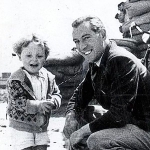
(d. 1981)
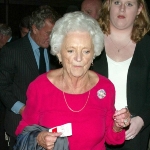
(1913 - 2003)
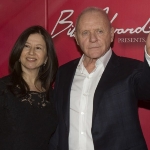
(b. March 20, 1956, Popayán, Colombia)
Stella Arroyave is an actress and producer, best known for her work in movies like "The Human Stain" and "Slipstream."
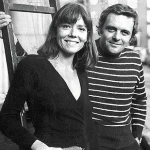
(b. 12 October 1942 in Sittingbourne, Kent)
Petronella Barker is an English actress.
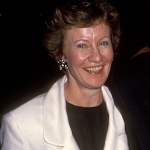
(m. 1973; div. 2002)
Jennifer Lynton is a retired English production assistant.
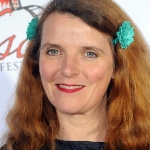
(b. 20 August 1969)
Abigail Rhiannedd Hopkins is an English singer-songwriter, actress and theatre director.
